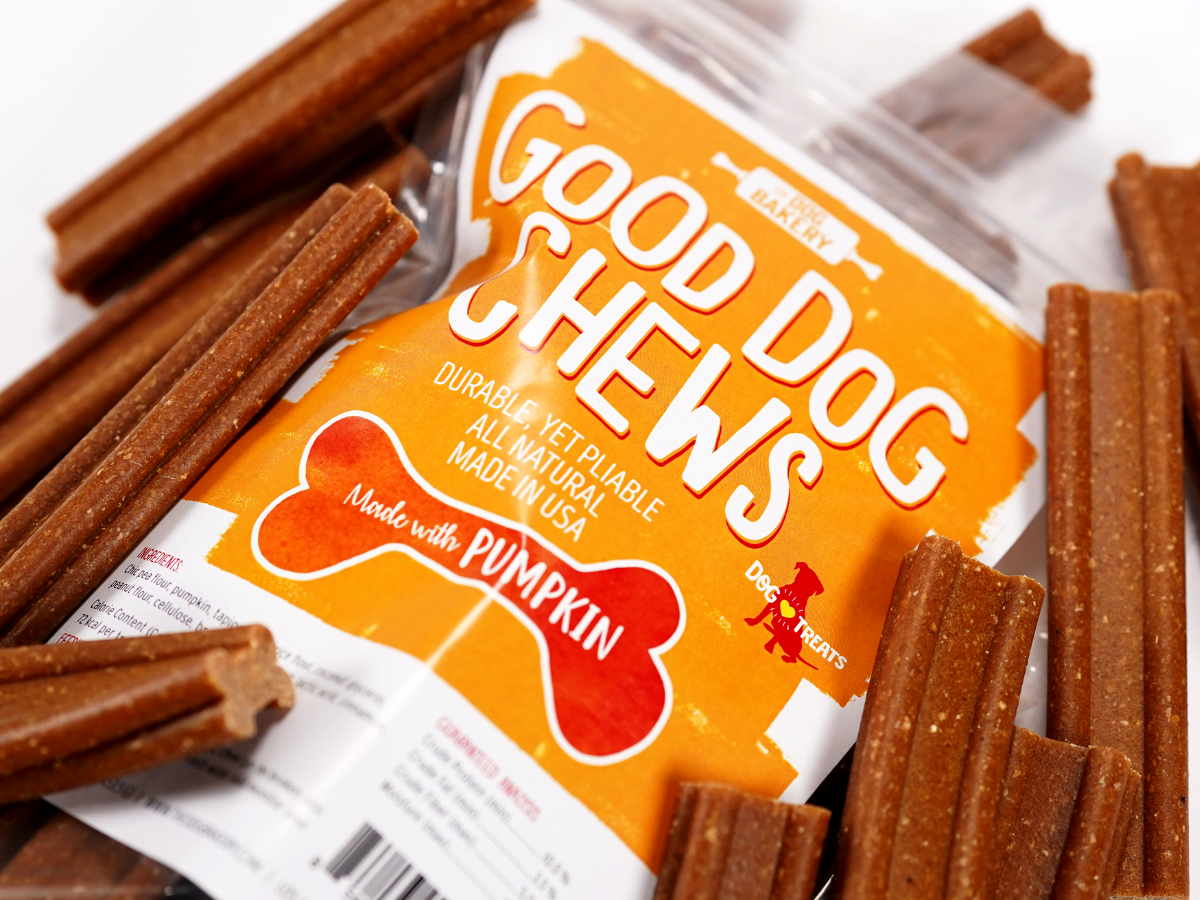Why Is My Dog Peeing In Their Sleep?
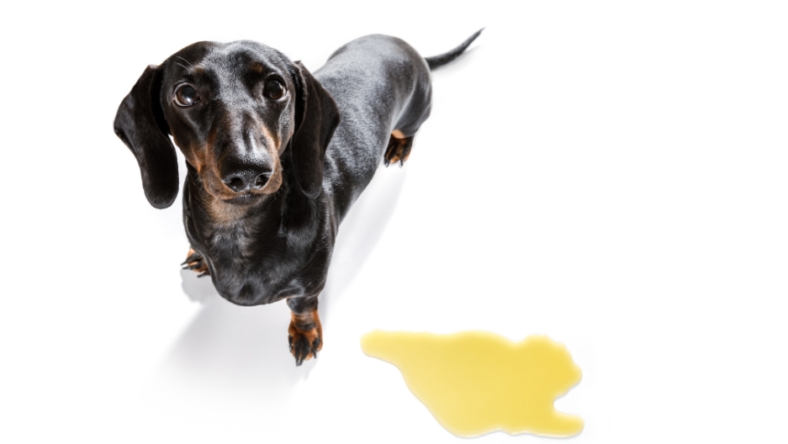
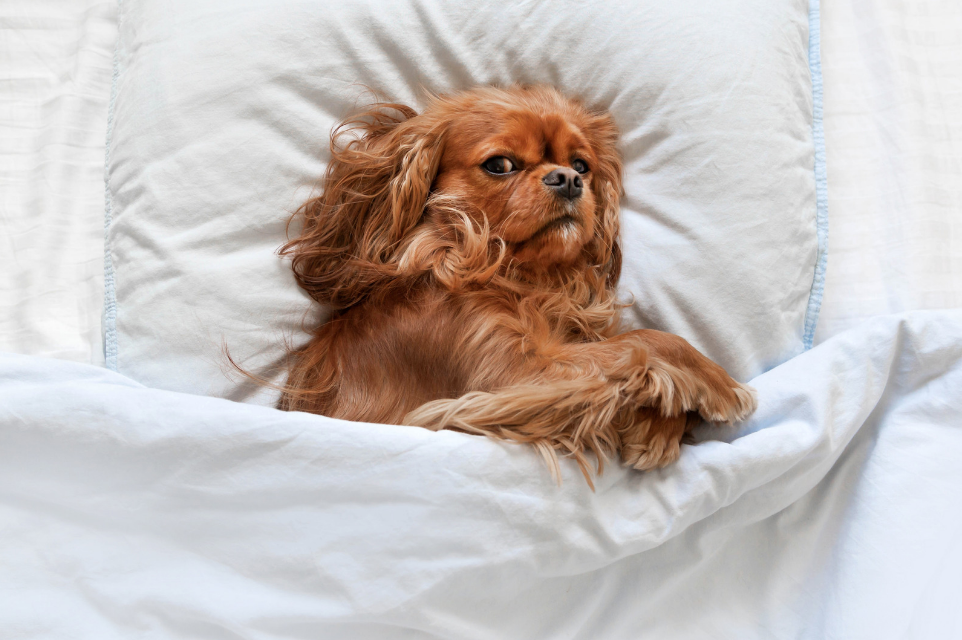
Is your dog having accidents at night and not leaving their bed, leaving you with worries and a mess in the morning? Sometimes accidents do happen, but if you start to see a pattern with your dog peeing in sleep, it could be a sign of a much bigger underlying problem.
If you’re feeling a little nervous to admit “my dog wet the bed while sleeping,” don’t worry–you are not alone, and there’s nothing to be embarrassed about. Dogs can pee themselves in their sleep for a number of reasons, and in the meantime, there are ways to protect your furniture and your pooch if they have another accident.
If your dog is peeing in their sleep, the first thing you should do is contact your vet. There are lots of reasons that can lead to a dog peeing in sleep, and all of them are concerns that need to be addressed by the veterinarian. Wetting the bed at any age is abnormal for dogs, so it doesn’t matter whether you have a young dog peeing in sleep or an elderly dog peeing in sleep, both are considered an issue. Your vet will work with you to help find a solution to help your dog stop having these accidents.
What’s Leading To My Dog Peeing In Sleep?
Most of the time, when your dog pees in their sleep, it’s because of a weakened sphincter muscle in their bladder. If they can’t control it, they’ll have an accident. This is why the majority cases of a dog peeing in sleep are older, spayed females– a hormonal imbalance, like the reduction of estrogen caused by a spay, can cause a dog to lose bladder control. However, several other things can lead to a dog peeing in sleep.
Before we move on, let’s make an important distinction between fully urinating while asleep vs. leaking small amounts of urine. If you’re asking “why is my female dog leaking urine while sleeping?” you could be dealing with a non-problematic, entirely typical phenomenon. Some female dogs become so relaxed while sleeping that they leak a few drops of urine, which is not the same as wetting the bed.
You should still check with your vet if you notice your female dog leaking urine while sleeping since this can sometimes make the dog more prone to UTIs and other infections.
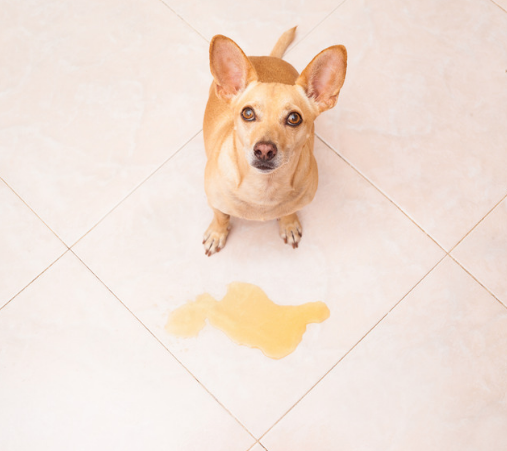
1. Bacterial UTIs
Bacterial urinary tract infections are the most common infectious disease found in dogs. Over 14% of dogs get one in their lifetime. While they are common, they can lead to serious complications if left untreated. However, they are easy to treat with medication, which your vet can prescribe.
Bladder Stones
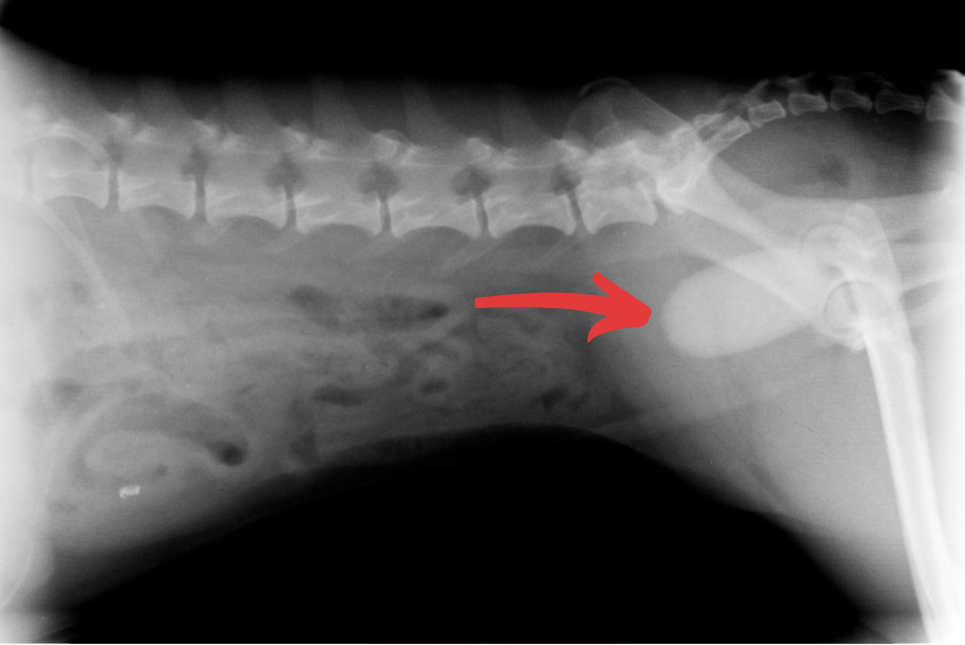
Any bladder instruction can cause incontinence. In the case of a dog peeing in sleep, this is most likely to be bladder stones. This damages the muscles of the bladder, which results in urine leakage. Other than stones, bladder tumors and polyps can also cause incontinence. Bladder cancer is rare in dogs, but it can also lead to nighttime accidents. This usually isn’t the first symptom, but if your dog is known to have bladder cancer, you might want to consider diapers or potty pads.
2. Cushing’s Disease
Cushing’s Disease is usually caused by a tumor in the pituitary gland. It affects the adrenal system and creates issues with the number of different hormones. These hormones impact the kidneys, among other things.
Because of how Cushing’s disease affects a dog’s adrenal and other glands in their bodies, their diet plays a major role in how their kidneys function. Foods and treats that are high in fats and sugars can affect the enzymes that break down those nutrients… which in turn can affect their kidneys and bladder.
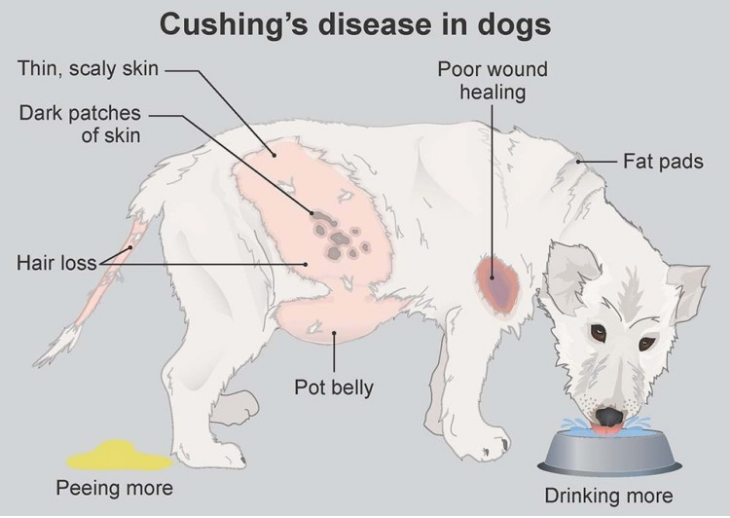
Cushing’s Disease is complicated to diagnose and requires a lot of testing. If you think your dog is exhibiting symptoms, you should speak to your veterinarian immediately. Cushing’s Disease usually shows up in older or middle-aged dogs, and canbe treated with medication based on how it’s affecting the dog.
3. Dementia
As your dog ages, their memory may begin to fail. If things are a bit foggy for them, they might just not remember their housetraining. For senior dogs with dementia, it’s unlikely that you’ll be able to help with medication– instead, taking them out more frequently, putting down potty pads, and helping accommodate them can contain the problem of an old dog peeing in their sleep.
4. Diabetes
Diabetes is often found in dogs; about 1 in every 300 dogs has it. Diabetes causes a dog to be increasingly thirsty, which leads to more frequent urination and urination at odd times. Diabetes can be treated in dogs, but it has to be diagnosed by a vet. This is done through medication and diet changes. While it’s usually a life-long disease for dogs, it can be managed and your dog can live a healthy, long life.
4. Hormonal Imbalance
As we mentioned above, the majority of dogs who pee in their sleep are older spayed females. However, this can happen to males, too! It’s a different type of imbalance, but the treatment is the same. The vet diagnoses it with a blood test and prescribes medication to correct the problem and improve the muscle tone of the bladder sphincter.
5. Kidney Disease
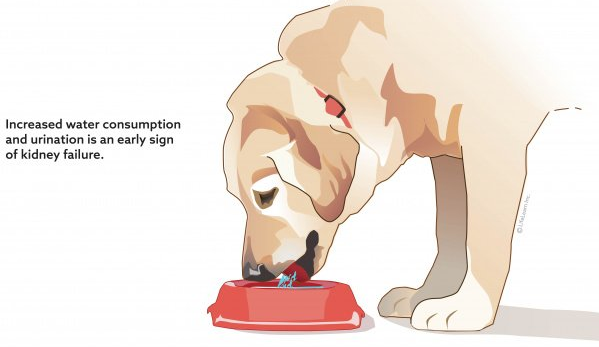
Kidney disease leads dogs to drink a lot more water than they usually do, which means they need to urinate more frequently. Additionally, kidney problems can cause weakness and disorientation, which may lead to accidents. Another sign of dog kidney failure–urine color. Dark yellow, brown, and red urine can all be signs of kidney failure, and your dog should be brought to an emergency vet immediately. Your vet will need to diagnose this with a blood test, but if it’s caught early a dog can recover well.
6. Prostate Disorders
If your dog is female, this definitely isn’t her problem! But boys can have prostate problems, especially as they age. Pressure from a swollen prostate can push on the bladder, causing frequent urination and discomfort.
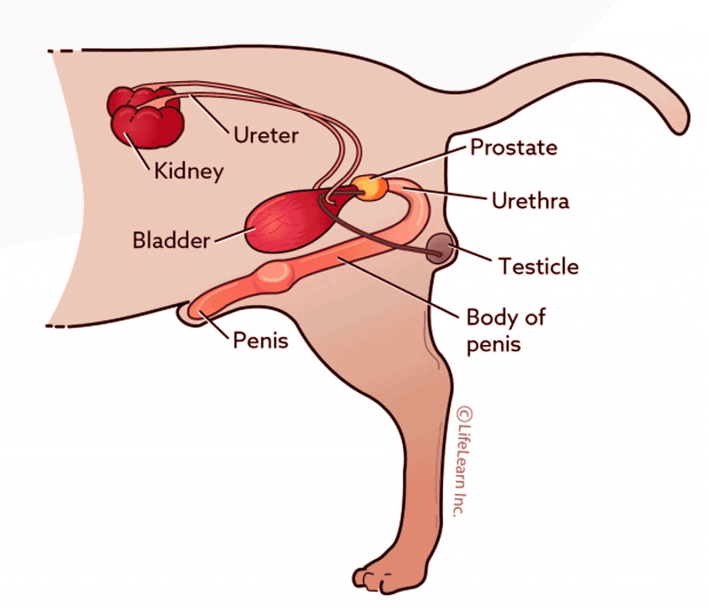
7. Spinal Cord Degeneration or Disease
If your dog has problems with their spinal cord, they may have mobility loss or sensation loss that might lead to your dog peeing in their sleep. These issues can also cause incontinence while awake. Only your vet can properly evaluate your dog to determine whether or not they have a problem with their spinal cord.
What To Do About My Dog Peeing In Their Sleep?
There are lots of things you can do for your dog to stop nighttime incontinence or make the experience less messy to clean up.
Veterinary Options
Your vet can prescribe medicine that can help your dog regain bladder control. Sometimes, when the peeing in sleep is a symptom of something bigger, surgery or more intensive treatments may be needed.
If you think your dog’s water intake needs to be reduced, you must also talk to your vet. Less water will actually make things like kidney disease worse and could harm your dog far more than a few nighttime accidents. Your vet is much more likely to recommend medical treatment.
Some commonly prescribed medications used for urinary incontinence include Proin (phenylpropanolamine) and Incurin (estriol), but both have a host of side effects and should be considered only when the circumstances absolutely call for it.
- Side effects of Proin in dogs include loss of appetite, increased or excessive thirst, difficulty urinating, restlessness, and in some serious cases stroke and seizures. This can last until you discontinue using the medication, and once you do, Proin side effects go away relatively slowly, and some dogs may have lasting effects.
- Side effects of Incurin in dogs include loss of appetite, increased or excessive thirst, and swelling of the vulva. After terminating the use of Incurin for dogs, side effects typically dissipate.
Your vet is your dog’s first line of defense and should be consulted right away if you notice that your dog is having nighttime accidents. Don’t do anything else on this list without also talking to the vet!
Dog Diapers
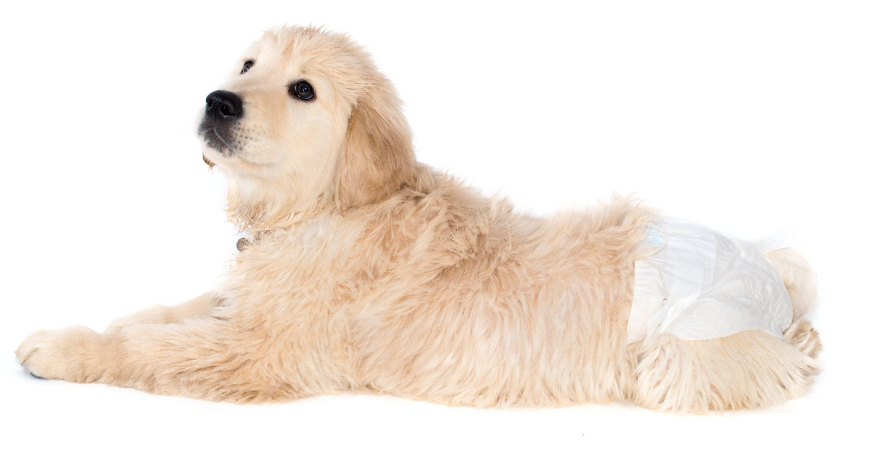
Some dogs’ nighttime incontinence can’t be fixed through medication or even surgery. If a dog has been injured badly or has spinal degeneration, there might not be a lot that can be done for them. If that’s the case, the dog may need to be diapered.
Dog diapers can be an everyday thing or a tool that’s just used temporarily. Your vet might recommend them for a dog with a UTI for a few days while the infection clears up.
Diapers for male dogs and diapers for female dogs are shaped differently, so make sure you get the one that correctly fits your pet!
If you want to be ecologically friendly, you can get reusable, washable dog diapers. They come in many sizes, so measure your dog to make sure that the diapers will fit. When you first put diapers on your dog, you should stay with him, give him treats, and play with him for some time until he gets used to them. This is also a good chance to make sure that the diapers fit your dog comfortably.
Potty Pads
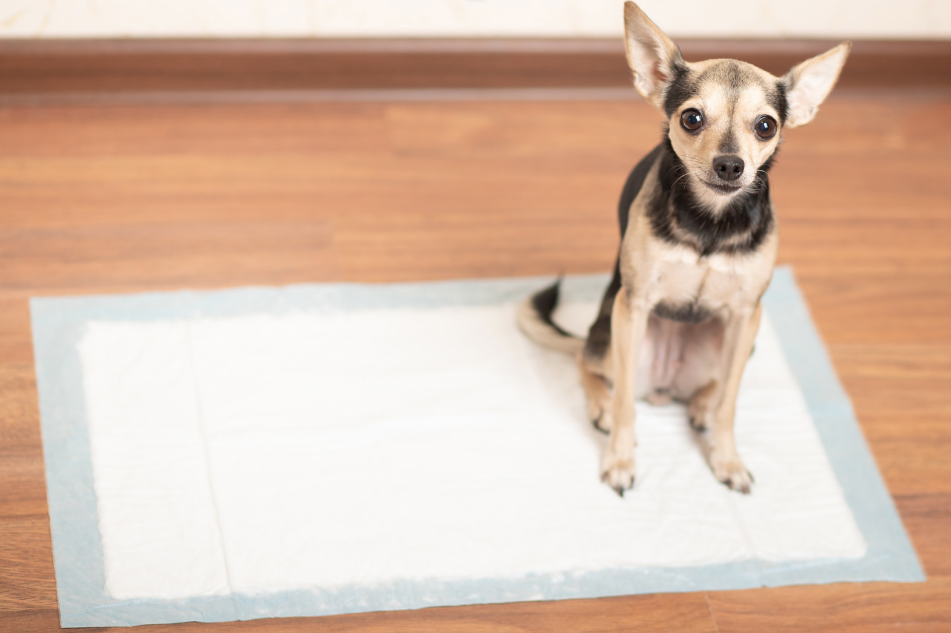
Absorbent pads are often used to housebreak puppies, but they can be used by seniors or other dogs who are having issues with urinary incontinence, too. You can put these pads down in your house where your dog usually sleeps or likes to lie down.
See also Try ‘Shampoo Therapy’ to help your dog’s itchy skin
These pads will protect your floors and other furniture. They have sticky adhesive backs to keep them from moving around, so they won’t slide all over the place. Once they’re used, you can just grab the corners, pick them up, and dispose of them in the trash.
Lifestyle Changes
Sometimes you can’t really do anything to stop your dog from peeing in their sleep– but there are things you can do to make it easier to clean up. Put down old towels on top of your dog’s bed, and buy a washable cover for it. Get covers for the furniture that the dog likes to go on, and make sure anything that’s dry-clean-only is put away from where they might sit on it.
You will want to get a good enzyme-based cleaner for your home to clean up stains and keep things sanitary. You will also want to put down potty pads under your dog’s bed since urine can seep through the bed and onto the floor.
You can also make changes to your dog’s schedule. This might mean taking them out a few extra times at night, or checking on them as they sleep.
Urine can cause mats in hair, which is very uncomfortable for your dog. If your long-haired dog is having issues with nighttime accidents, ask your groomer about a sanitary trim. This is a trim that cuts down the hair around a dog’s private parts and makes it easier to keep clean. This trim will keep your dog comfortable at night.
Don’t Blame Your Dog
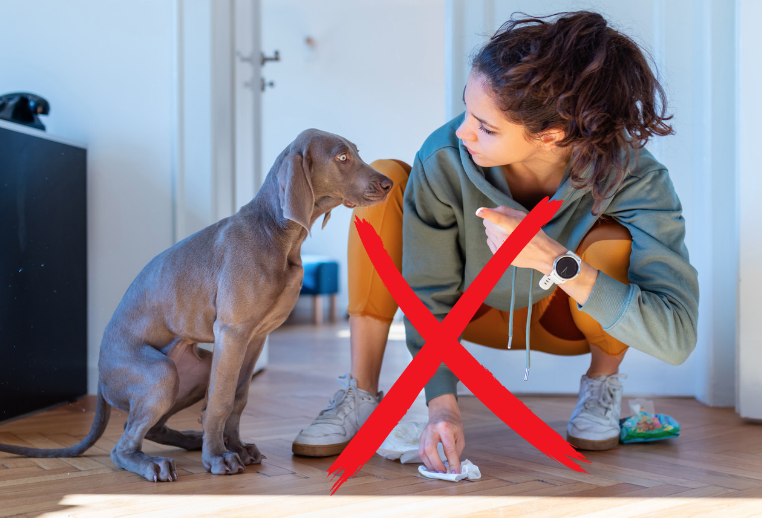
Remember, your dog is peeing in their sleep because something is wrong. They might be in pain and have no way to show it. No dog peeing in sleep is doing it to mark territory, be naughty, or for any malicious reason. They probably don’t even know they’re doing it. Be patient with your dog. They don’t know they’re doing anything wrong, and won’t understand if you yell at them or punish them for their nighttime accidents.
Instead, take them to the vet and let them know as soon as possible that your dog is struggling with this issue. Nighttime incontinence isn’t something you or your dog should have to live with, especially because in most cases treatment is possible.


